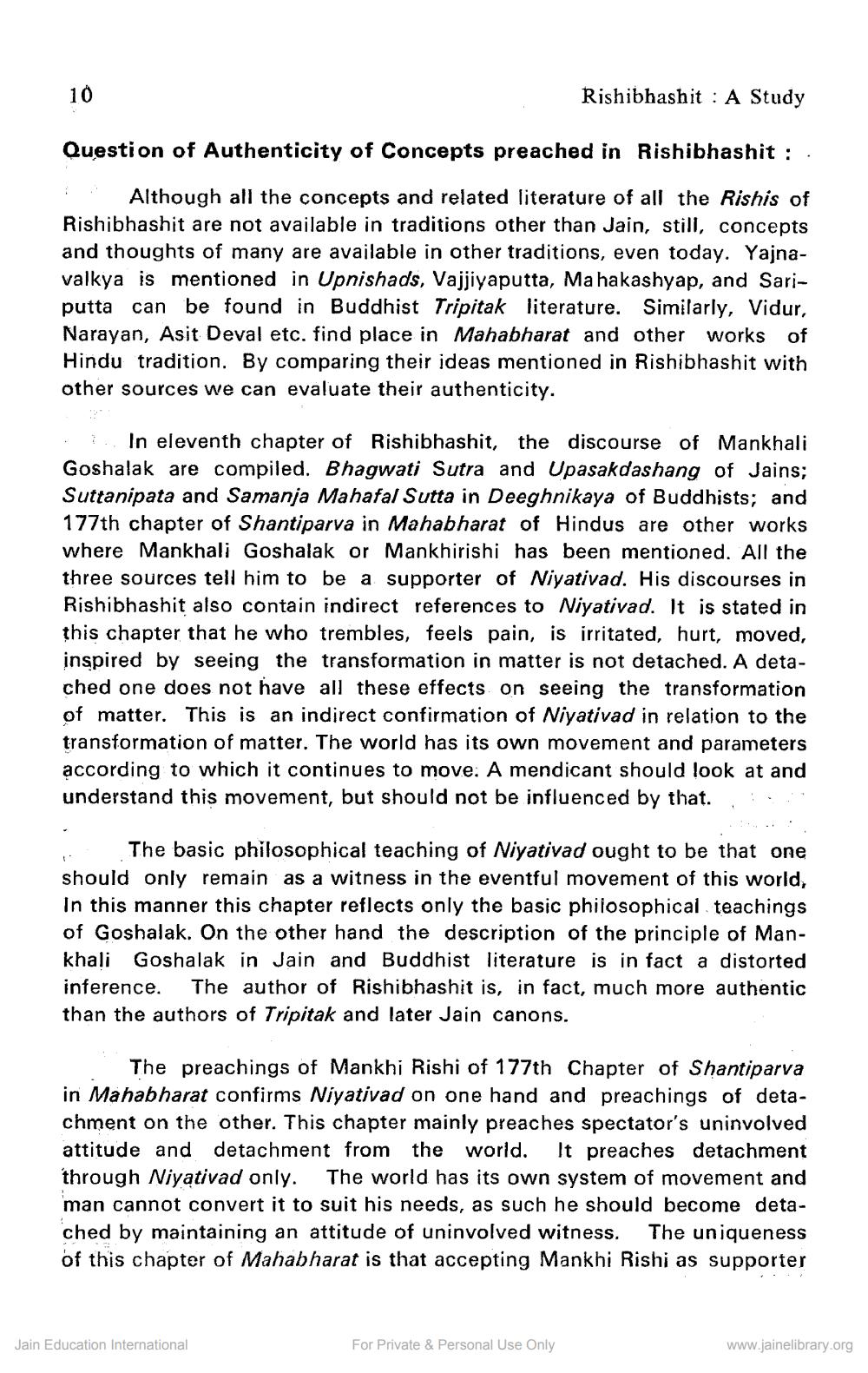________________
10
Rishibhashit : A Study
Question of Authenticity of Concepts preached in Rishibhashit : .
i Although all the concepts and related literature of all the Rishis of Rishibhashit are not available in traditions other than Jain, still, concepts and thoughts of many are available in other traditions, even today. Yajnavalkya is mentioned in Upnishads, Vajjiyaputta, Ma hakashyap, and Sariputta can be found in Buddhist Tripitak literature. Similarly, Vidur, Narayan, Asit Deval etc. find place in Mahabharat and other works of Hindu tradition. By comparing their ideas mentioned in Rishibhashit with other sources we can evaluate their authenticity.
In eleventh chapter of Rishibhashit, the discourse of Mankhali Goshalak are compiled. Bhagwati Sutra and Upasakdashang of Jains Suttanipata and Samanja Mahafal Sutta in Deeghnikaya of Buddhists; and 177th chapter of Shantiparva in Mahabharat of Hindus are other works where Mankhali Goshalak or Mankhirishi has been mentioned. All the three sources tell him to be a supporter of Niyativad. His discourses in Rishibhashit also contain indirect references to Niyativad. It is stated in this chapter that he who trembles, feels pain, is irritated, hurt, moved, inspired by seeing the transformation in matter is not detached. A detached one does not have all these effects on seeing the transformation of matter. This is an indirect confirmation of Niyativad in relation to the transformation of matter. The world has its own movement and parameters according to which it continues to move. A mendicant should look at and understand this movement, but should not be influenced by that.
The basic philosophical teaching of Niyativad ought to be that one should only remain as a witness in the eventful movement of this world, In this manner this chapter reflects only the basic philosophical teachings of Goshalak. On the other hand the description of the principle of Mankhali Goshalak in Jain and Buddhist literature is in fact a distorted inference. The author of Rishibhashit is, in fact, much more authentic than the authors of Tripitak and later Jain canons.
The preachings of Mankhi Rishi of 177th Chapter of Shantiparva in Mahabharat confirms Niyativad on one hand and preachings of detachment on the other. This chapter mainly preaches spectator's uninvolved attitude and detachment from the world. It preaches detachment through Niyativad only. The world has its own system of movement and man cannot convert it to suit his needs, as such he should become detached by maintaining an attitude of uninvolved witness. The uniqueness of this chapter of Mahabharat is that accepting Mankhi Rishi as supporter
Jain Education International
For Private & Personal Use Only
www.jainelibrary.org




